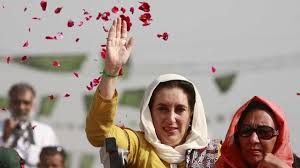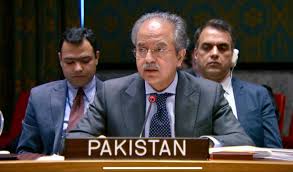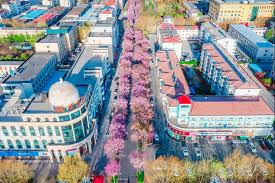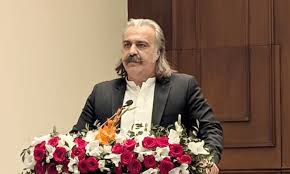Benazir Bhutto encountered unique problems in politics: Mark Siegel

Islamabad: Benazir Bhutto encountered unique problems of being a woman in politics, says Mark Siegel in an exclusive interview given to SouthAsia Magazine for its April 2019 issue. The interview is part of the magazine’s cover story on the PPP which has appeared in its April 2019 issue, titled ‘Is the Party Losing the Pulse?’ In the interview, Mark Siegel talks about his long association with the PPP and Benazir Bhutto. He refers to one particular meeting which Benazir Bhutto and Hillary Clinton had when they met in the Oval Diplomatic Reception Room of the White House in May, 1998. He believes the meeting has never been reported before. Hillary Clinton was the First Lady then. Mark Siegel was Benazir Bhutto’s note-taker on that occasion while Bruce Reidel of the U.S. National Security Council took notes for Hillary Clinton. Siegel says that while the meeting was scheduled for 30 minutes, it lasted for 90 minutes. To Siegel, it was a long, candid and startling conversation between the two extraordinary women who both were painful victims of the politics of personal destruction. Much of the conversation, he says, was about the special difficulties they faced as women in politics and government. In reply to a question about Benazir Bhutto’s personality as a leader, Mark Siegel says “Benazir was like her name – unique, one of a kind. Her private persona was a bit different than her public one. She was, first of all, a kind and gentle person. And she was funny, really funny. But of course, she was also very cautious and sometimes fragile, which was not surprising in light of her family’s history. There was always an obvious vulnerability. She was very close to her father and was devastated by his death and the circumstances of his death. She never really recovered from that.” Mark Siegel says in the interview that he is a lover of Pakistan and its image is worth building for its 200 million people. He says Pakistan’s international image has no relationship to reality as it is labeled a terrorist state when it actually has been the worst victim of terrorism in the world. He says Pakistan is viewed as undeveloped and unsophisticated when its technology is the finest in the world and its people are hard working. About Bilawal Bhutto, Mark Siegel says he’s absolutely certain that he is fully committed to both democracy and dramatic economic modernization and equalization and he has surrounded himself with a cadre of young leaders who someday will lead Pakistan into a very bright future. In his opinion, somehow Pakistan is viewed as the militant instigator against India while the world is blissfully unaware that the source of tension, the occupation of the Muslim principality of Kashmir, was mandated by the United Nations to be settled by self-determination and free elections under a UN resolution which India has blocked for 70 years. Siegel believes that political instability and dictatorship have further muddled Pakistan’s image, while the full story is of a people that have taken heroic steps, against all odds, to build a democracy. He says the image of Pakistan is worth building for the PPP and other political forces that believe in a democratic future. Asked how can the PPP make their basic philosophy of catering to the poor man more relevant in today’s world, Mark Siegel says the PPP was, is and will always be a liberal, social democratic party whose universal platform is directed towards income equalization and opportunity to all strata of society, not just to the power elite. He especially mentions Senator Sherry Rehman and says she is a dynamic fighter for human rights and economic reforms and says she is doing a great job in the Senate. Mark says the new Pakistan deserves a successor generation of young political leaders who can simultaneously address problems that have held Pakistan back, like the failure of the rich to pay taxes and the impact that this has had on stifling education and opportunity in its cities and villages. The PPP, he says, is shaping a successor generation of new, talented, technological leaders generated by an increasingly democratic party structure. He says that though change is often difficult, but change is happening in the PPP.





